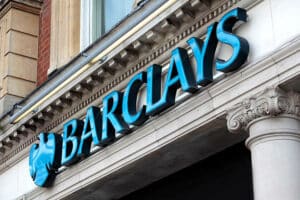This post is the second part of the best private banks for high net worth UK double feature. Part one is here.
Our discussion will dig into the details of the top private banks in the UK.
Nothing written here should be considered as financial advice, nor a solicitation to invest.
If you want to invest as an expat or high-net-worth individual, which is what I specialize in, you can email me (hello@adamfayed.com) or use WhatsApp (+44-7393-450-837).
It remains my view that private banks usually offer poor value compared to do-it-yourself (DIY) or services like our own.
Offshore banking in the UK
Private banks in the UK do offer offshore banking services.
Expats that live in the UK can think that setting up an international offshore bank account is one of the great ways to manage and keep track of their finances.
Offshore accounts are available in pounds sterling, euros and US dollars and usually require larger deposits than standard bank accounts. They offer certain advantages over local banks, such as favorable tax conditions.

What are the best banks in the UK?
There are several banks in the UK to choose from, each offering specific packages including services for foreigners.
The most popular UK banks have their branches on high streets across the country and are also capable to offer online and mobile services.
Most banks are open from about 09:00 to 17:00.
As per Statista, the largest banks in the UK include:
- Barclays
- HSBC
- Lloyds Bank
- NatWest
All these four institutions reportedly rank as one of the Europe’s biggest banks by market cap.
HSBC is the biggest, with more than $176 billion in market cap, surpassing Barclays and Lloyds.
That doesn’t mean the biggest UK banks are also the best, though.
Competition is strong, with digital challengers disrupting traditional banking through mobile-first innovation and competitive fees.
While major banks show financial stability, they lag behind digital banks in customer satisfaction, said Statista.
Newer entrants like Starling and Monzo are gaining customers, while traditional giants like HSBC and Barclays are losing clients.
That goes to show that customer experience and flexibility are now as important as size and financial strength in banking.
Best Private Banks for HNWIs UK
This list highlights some of the top private banks in the UK.
Remember private banks are, well, quite private, so there isn’t much information available to the public.
HSBC Private Bank
HSBC Global Private Banking tops in the UK and Europe, with wealth management services offering to high-net-worth individuals.
Clients get personalized investment advice and credit solutions, as well as access to international banking services.
Also, the bank offers services like retirement planning, tax advice, and family wealth preservation.
It was formed in December 1999 and was previously dubbed HSBC Republic.
Barclays Private Bank

The bank has been providing a variety of services for more than three centuries to affluent:
- Individuals
- Families
- Trusts
- Charities
- Family offices
Customers have access to corporate and investment banking as well as the wider resources of the Barclays Group. They are also paired with a dedicated private banker.
There’s a minimum investment portfolio of 5 million British pounds for prospective clients.
Lloyds Private Banking
Lloyds is one of the best private banks for high-net-worth individuals in the UK that offers individualized wealth management and investment solutions.
The goal of the individualized advice given to clients is to increase and safeguard their wealth through stock, bond, and alternative investment options.
For ultra-wealthy clients, Lloyds Private Bank offer an exclusive Mayfair Banking scheme which offers a dedicated private banker, among other custom services.
Lloyds Mayfair Account is open to those with more than 2 million pounds worth of assets or at least 500,000 pounds in yearly income.
Santander Private
Santander Private Bank provides personalized services, including special banking and savings accounts, exclusive investment on its Model Portfolio Service, plus benefits associated with the Santander World Elite Mastercard.
Individuals must have more than 500,000 pounds in savings or investments, or make over 250,000 pounds a year to be eligible.
Goldman Sachs
Goldman Sachs Private Wealth Management provides family offices and ultra-high-net-worth individuals with first-rate services.
The bank, which is well-known for its global presence, offers:
- tax planning
- private equity
- hedge funds
- other exclusive investment opportunities
Pained by financial indecision?

Adam is an internationally recognised author on financial matters with over 830million answer views on Quora, a widely sold book on Amazon, and a contributor on Forbes.



